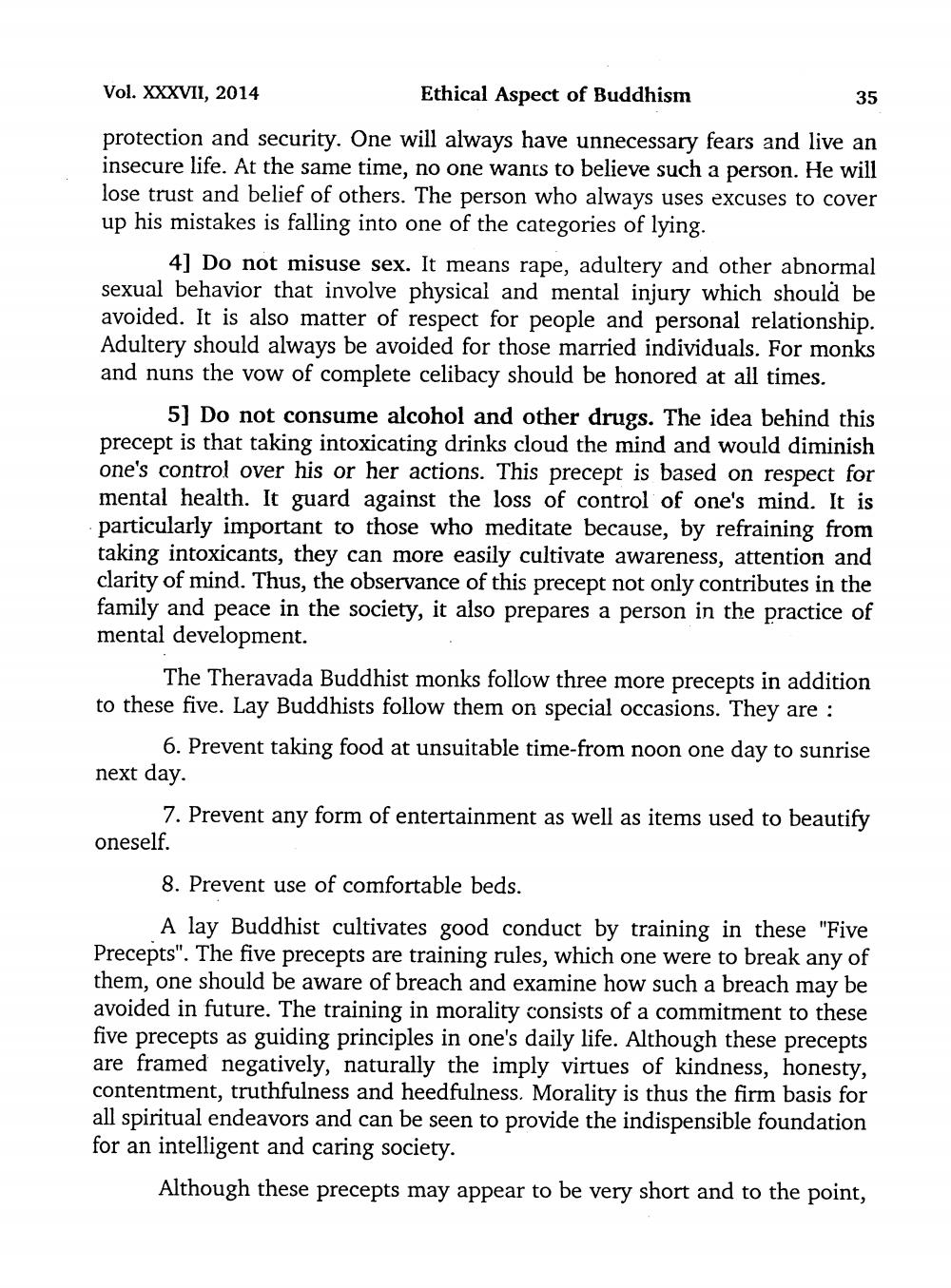________________
Vol. XXXVII, 2014
Ethical Aspect of Buddhism
35
protection and security. One will always have unnecessary fears and live an insecure life. At the same time, no one wants to believe such a person. He will lose trust and belief of others. The person who always uses excuses to cover up his mistakes is falling into one of the categories of lying.
4] Do not misuse sex. It means rape, adultery and other abnormal sexual behavior that involve physical and mental injury which should be avoided. It is also matter of respect for people and personal relationship. Adultery should always be avoided for those married individuals. For monks and nuns the vow of complete celibacy should be honored at all times.
51 Do not consume alcohol and other drugs. The idea behind this precept is that taking intoxicating drinks cloud the mind and would diminish one's control over his or her actions. This precept is based on respect for mental health. It guard against the loss of control of one's mind. It is particularly important to those who meditate because, by refraining from taking intoxicants, they can more easily cultivate awareness, attention and clarity of mind. Thus, the observance of this precept not only contributes in the family and peace in the society, it also prepares a person in the practice of mental development.
The Theravada Buddhist monks follow three more precepts in addition to these five. Lay Buddhists follow them on special occasions. They are :
6. Prevent taking food at unsuitable time from noon one day to sunrise next day.
7. Prevent any form of entertainment as well as items used to beautify oneself.
8. Prevent use of comfortable beds.
A lay Buddhist cultivates good conduct by training in these "Five Precepts". The five precepts are training rules, which one were to break any of them, one should be aware of breach and examine how such a breach may be avoided in future. The training in morality consists of a commitment to these five precepts as guiding principles in one's daily life. Although these precepts are framed negatively, naturally the imply virtues of kindness, honesty, contentment, truthfulness and heedfulness. Morality is thus the firm basis for all spiritual endeavors and can be seen to provide the indispensible foundation for an intelligent and caring society.
Although these precepts may appear to be very short and to the point,




